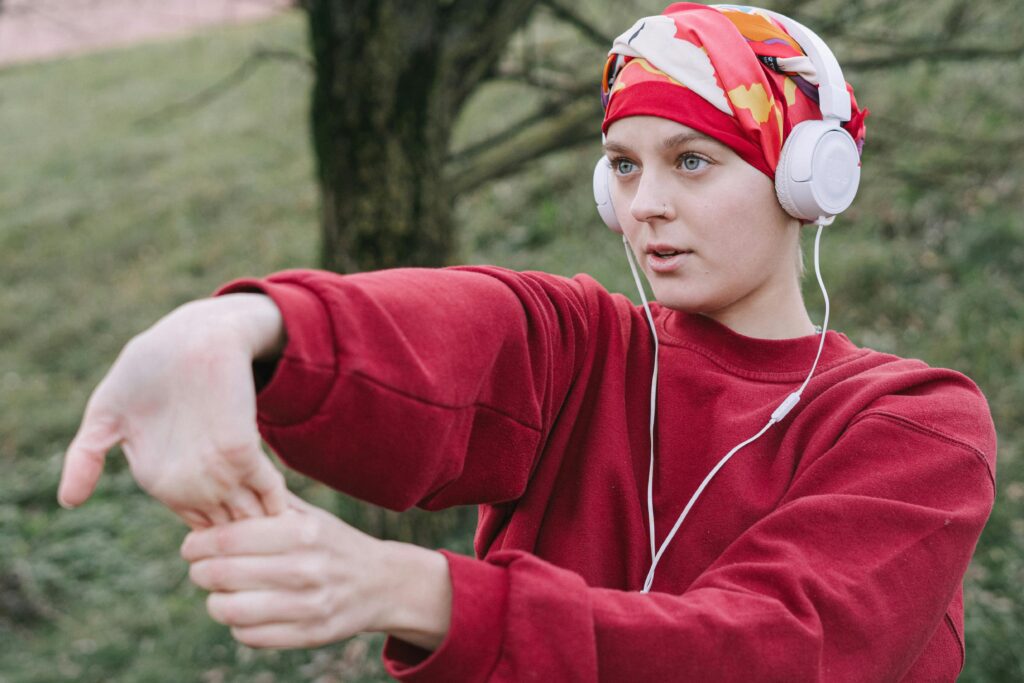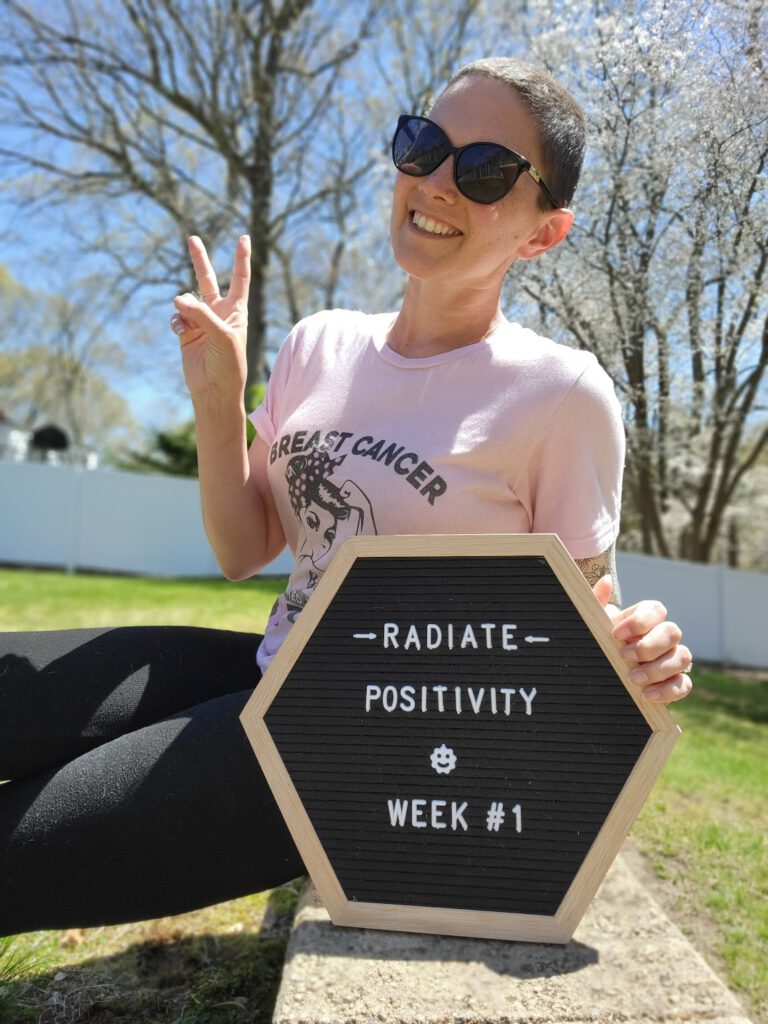Navigating Weight After Breast Cancer
Embarking on the journey to recovery after breast cancer treatment is both courageous and challenging. Yet, for many survivors, a significant obstacle remains even after treatment ends: weight gain.
Beyond its physical effects, weight management for breast cancer survivors can carry a heavy emotional burden, casting shadows on the joys of survivorship. But does it have to last forever? Absolutely not! Within every challenge lies an opportunity for empowerment. By understanding the complexities behind post-treatment weight gain and arming yourself with effective strategies, you possess the power to take back control of your life.
From unraveling the factors contributing to this obstacle to implementing practical strategies for success, it’s time to rewrite your narrative, embrace your resilience, and embark on a journey of healing and self-discovery.

Causes of Weight Gain After Breast Cancer Treatment
Let’s take a minute to visualize what’s might be going on within your body. Hormonal changes wreaking havoc on your endocrine system, medications playing a double-edged sword on your health, physical activity lounging in the backseat, and the nagging call of emotional eating echoing in your mind.
Hormonal changes are a natural cycle and unfortunately, come as a consequence of breast cancer treatment. During treatment, the delicate balance of your hormones dances with each other disrupting the overall flow of your body, leading to shifts in metabolism and fat storage.
This is especially true for those who have been put through medical menopause.
Medications, while essential for combating breast cancer, may come with unwanted side effects, including weight gain. When treatment is over though, survivors often find themselves grappling with fatigue, mobility challenges, and simply adjusting to their “new normal”. Let’s not forget emotional eating – seeking relief from food during times of stress or uncertainty is a common coping mechanism for a lot of us.
Here’s the silver lining: knowledge is power!
Think of your hormones as the oil in a car. If it’s disrupted at all or removed entirely like when depleting estrogen to combat estrogen positive breast cancer, is the car able to function properly? Sure you might be able to turn the car on, listen to music maybe roll down the windows, but if you tried to start the engine it would probably seize to exist right?
By diving into these factors, my goal is to give you invaluable insights into the inner workings of your body and the challenges you might be facing. Armed with this understanding, you’ll have a sturdy foundation to build on taking back control over your life!
Tips for Managing Weight Through Survivorship
You have powerful allies at your disposal: Movement, Nutrition, and Mindfulness. While a balanced diet remains crucial for overall wellness, let’s shine a spotlight on the power of physical activity.
Activities that strengthen your body and nourish your soul are central to my approach in designing fitness programs for weight management for breast cancer survivors. Whether it’s taking brisk walks in the park or joining dance classes with friends, there are diverse options as exhilarating as they are beneficial.

Consider incorporating these simple yet effective strategies into your daily routine:
- Find movement that ignites your passion and brings you joy. Your workout doesn’t have to be confined to a gym – the world is your playground! Whether it’s hiking through a local park with your pup, playing with your kids on a nearby playground, or practicing gentle yoga in your backyard, let your heart guide you towards fulfilling movement.
- Cultivate awareness of your body and its sensations through mindful movement. Breathing exercises can be particularly helpful in navigating the challenges of survivorship. Slow down and follow your breath as you stretch and strengthen, allowing each movement to flow with intention.
- The best workout you can do is the one you do consistently! Consistency is key on the path to long-term success. Make movement a lifestyle by incorporating it into your daily routine, even if it’s just a few minutes of stretching or a brief stroll around the neighborhood. Every step counts towards a healthier, happier you.
- There’s a reason why studies who those who workout in a group or with a partner tend to lose more weight. So grab your friends, family, or a trusted fitness partner (like me!) to keep you motivated and accountable. Joining a class at your local gym or simply scheduling regular walks with a friend can provide invaluable results!
Remember, movement is not just about burning calories; it’s about nurturing your body, uplifting your spirit, and embracing the joy of living fully.. A cancer diagnosis is a complete game-changer. Your exercise routine should driven by the will to thrive in the face of adversity.
So lace up your sneakers, step outside into the world of possibilities, and let movement be your guide towards a brighter, more vibrant future.

The Role of Self-Compassion
weight management during breast cancer treatment loves to whisper doubts and insecurities into the minds of survivors. When we look in the mirror it becomes like a battleground with each reflection a reminder of battles fought and scars earned. Let’s not let the negativities win, but instead shift our mindset to one of hope.
If a friend approached you with the same struggles, how would you respond? Would you offer a gentle embrace, shower them with words of kindness and understanding? I bet you would. So why not speak to yourself in the same loving manner?
Weight gain is not a reflection of worth or value. It’s a natural response to the challenges of survivorship, a testament to the resilience of the human spirit. When you embrace self-compassion, you can rewrite your narrative!
Remember that self-compassion isn’t just about eliminating self-judgment; it’s about building a foundation of resilience and positivity. It’s about recognizing that every step, every stumble, is a part of your journey towards healing.
All it takes is to start with small acts of kindness towards ourselves. Give yourself permission to rest when you’re tired, nourish your body when you’re hungry, and celebrate yourself when you achieve even the smallest of victories.
Empowering Breast Cancer Survivors
One thing remains abundantly clear: empowerment begins with knowledge and action.
Throughout this article, we’ve explored the multifaceted challenges of weight gain in survivorship, from hormonal changes to emotional eating, and the transformative power of self-compassion. But our journey doesn’t end here – it’s just the beginning.
To achieve lasting wellness, it’s essential to adopt a holistic approach to weight management. This means nourishing your body with nutrient-dense foods, embracing regular physical activity, and cultivating a mindset of self-compassion and resilience.
But remember, you don’t have to walk this path alone. Reach out to healthcare professionals for guidance and support, and lean on your peers for encouragement and understanding. Together, we can navigate the twists and turns of survivorship with grace and determination.
So, as you embark on this journey of healing and self-discovery, know that you are not alone. With patience, persistence, and a commitment to your well-being, you have the power to achieve your health goals and thrive in the face of adversity.
Let’s rewrite the narrative of survivorship together – one empowered step at a time.




